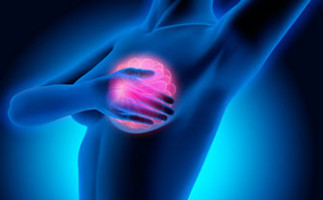
Researchers have identified a metabolic enzyme and pathway in some triple-negative breast cancer (TNBC) patients, which they hope could serve as a biomarker to select patients to receive targeted therapy.
Triple-negative breast cancer (TNBC) is the most aggressive form of breast cancer, disproportionally affecting young Black women. The disease metastasises quickly with high relapse and mortality rates.
“Our work shows that a fraction of TNBC with high expression of dihydrolipoamide S-Succinyltransferase (DLST), a metabolic enzyme, in their tumour cells depends on the TCA-cycle for survival. Hence, DLST expression could serve as the biomarker to select TNBC patients to receive CPI-613, a drug currently in clinical trial for treating other cancers,”
explains corresponding author Hui Feng, MD, PhD, associate professor of pharmacology and medicine at Boston University School of Medicine.
Researchers in the Feng lab analysed human patient TNBC samples, human cell lines, including those injected into animals to define the contribution of DLST to TNBC pathogenesis. Comprehensive biochemical and molecular assays were also utilised to understand the metabolic and molecular properties of TNBC cells.
“Due to current challenges in treating triple-negative breast cancer, our studies suggest that a fraction of patients with aggressive tumours can benefit from CPI-613, a drug disrupting the TCA cycle if their tumour cells have high DLST expression,” said Feng.
These finding appear online in the journal Communications Biology.
We are an independent charity and are not backed by a large company or society. We raise every penny ourselves to improve the standards of cancer care through education. You can help us continue our work to address inequalities in cancer care by making a donation.
Any donation, however small, contributes directly towards the costs of creating and sharing free oncology education.
Together we can get better outcomes for patients by tackling global inequalities in access to the results of cancer research.
Thank you for your support.